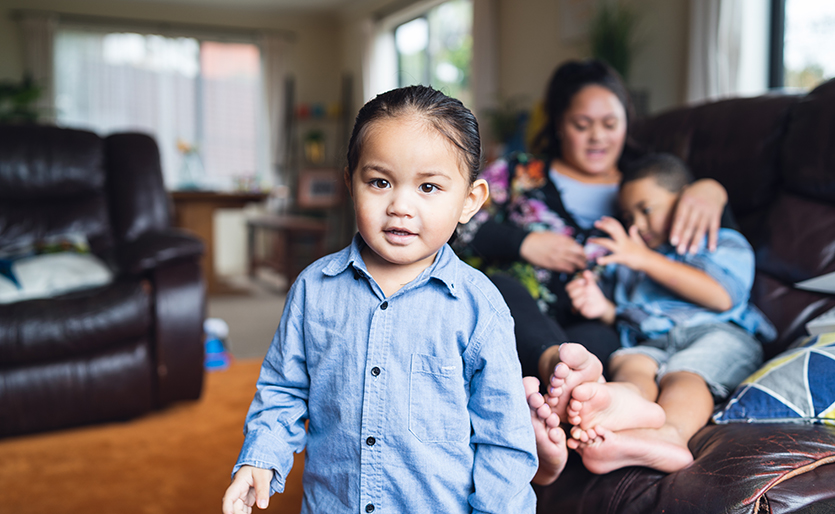
This page was last updated 23 August 2021.
DCP Multicultural Services is a unit within the department that provides a state-wide service and operates under a child centred, family-focused and community minded framework with culturally sound practice and trauma informed engagement.
Multicultural Services provides an alternative response to families and communities from CALD backgrounds, which encompasses an educative approach that aims to increase their understanding of the child protection system in Australia.
The program assists CALD families to access a wide range of support services that cater for individual and family needs, promoting the family to remain together in a safe and stable environment, while also addressing any child protection concerns.
Families and communities are encouraged to participate in the process of addressing child protection concerns, however the program is voluntary and families consent to be involved.
The unit also provides cultural consultation to external and internal agencies and support community child safety initiatives.
When placing culturally and linguistically diverse (CALD) children in out of home care, the Service Provider will adhere to the Children and Young People (Safety) Act 2017 Part 3 (10) (c) Principles of Intervention which states:
"Account should be taken of the culture, disability, language and religion of children or young people, and if relevant, those in whose care children and young people are placed"
Given the importance of CALD children and young people in care being provided the opportunity to develop and/or strengthen a sense of cultural and ethnic identity, workers must attempt to identify suitable placement options for CALD children and young people in the following order:
- a member of the child or young person’s family
- a member of the child or young person’s cultural, ethnic, language and religious community, considering issues such as caste, tribal groups, province, and ethnic disparity
- a member of the child or young person’s religious community*
- a member of the child or young person’s country or ethnic origin; or
- an suitable family based carer of any cultural background, who is willing to support a child or young person’s connection to culture.
*this may not apply to all cultural groups.
When considering placement matching for CALD children and young people, careful consideration should be given to the cultural identity / ethnicity, religion, and language of potential carers. A placement may be considered more appropriate the closer ethnic communities are geographically, as countries that are geographically close often share many cultural, religious and ethnic practise and beliefs.
Consideration should also be given to the suitability of a placement within particular cultures if there is historical or current conflict between ethnic groups. It is critical to work in partnership with families and appropriate community members to gather accurate information and develop an understanding of the cultural, ethnic, and religious needs of CALD children and young people to support the identification of appropriate placements.
1. The Service Provider will be sensitive to the linguistic, cultural and religious diversity of children and will acknowledge the importance of these factors in planning and delivery culturally competent services.
2. The Service Provider will involve relevant members of the child's community and extended family as appropriate and use interpreters in communication with the child and family (refer to the South Australian Interpreting and Translating Policy for Migrant and Non-Verbal (sign) Languages).
3. The Service Provider will develop links with culturally appropriate services as soon as a child is placed in care, or as soon as they become aware of the child's linguistic, cultural or religious identity.
4. The Service Provider will ensure staff receive adequate information or training on culturally sensitive caring, to ensure that a child's cultural values, beliefs and practices are respected and upheld.
5. The Service Provider will ensure when a child is placed in home-based care that the carer is informed of specific aspects of a child's culture or religious identity, such as dietary laws, religious customs and beliefs and religious requirements, such as appropriate dress and behaviour.
- At the earliest possible time, carers will receive additional information or training concerning specific cultural issues, as required. Service Provider to work in partnership with DCP Regional Office to develop and maintain the Cultural Maintenance Plan as per the Children and Young People (Safety) Act Part 3. 28 (2)(b).
6. The Service Provider must obtain a working knowledge and understanding of clients' racial and cultural affiliations, identities, values, beliefs and customs by attending training and forums that promote awareness of cultural and cross-cultural issues and culturally competent practice.
- The Service Provider will seek guidance regarding service development and delivery from community members, mentors, advisors and recognised Elders from culturally and linguistically diverse communities.
- DCP Multicultural Services can assist in coordinating consultation and advice on service development and delivery (DCPMulticulturalServices@sa.gov.au).
Culture - a set of distinctive spiritual, material, intellectual and emotional features that characterise a society or social group, encompassing lifestyles, ways of living together , value systems, traditions and beliefs, and art and literature.
Ethic origin - the ancestral race that an individual belongs to, as opposed to their current nationality. For example, a child from South Sudan would be considered to have an African ethnic origin, and a Vietnamese child, an Asian ethnic origin.
Ethnicity –
- the shared identity or similarity of a group of people on the basis of one or more factors including: a long shared history, the memory of which is kept alive
- a cultural tradition, including family and social customs, sometimes religiously based
- a common geographic origin
- a common language (but not necessarily limited to that group)
- a common literature (written or oral)
- a common religion
- being a minority (often with a sense of being oppressed)
- being racially conspicuous.
Religion - a personal set of institutionalised system of religious attitudes, beliefs and practices.

